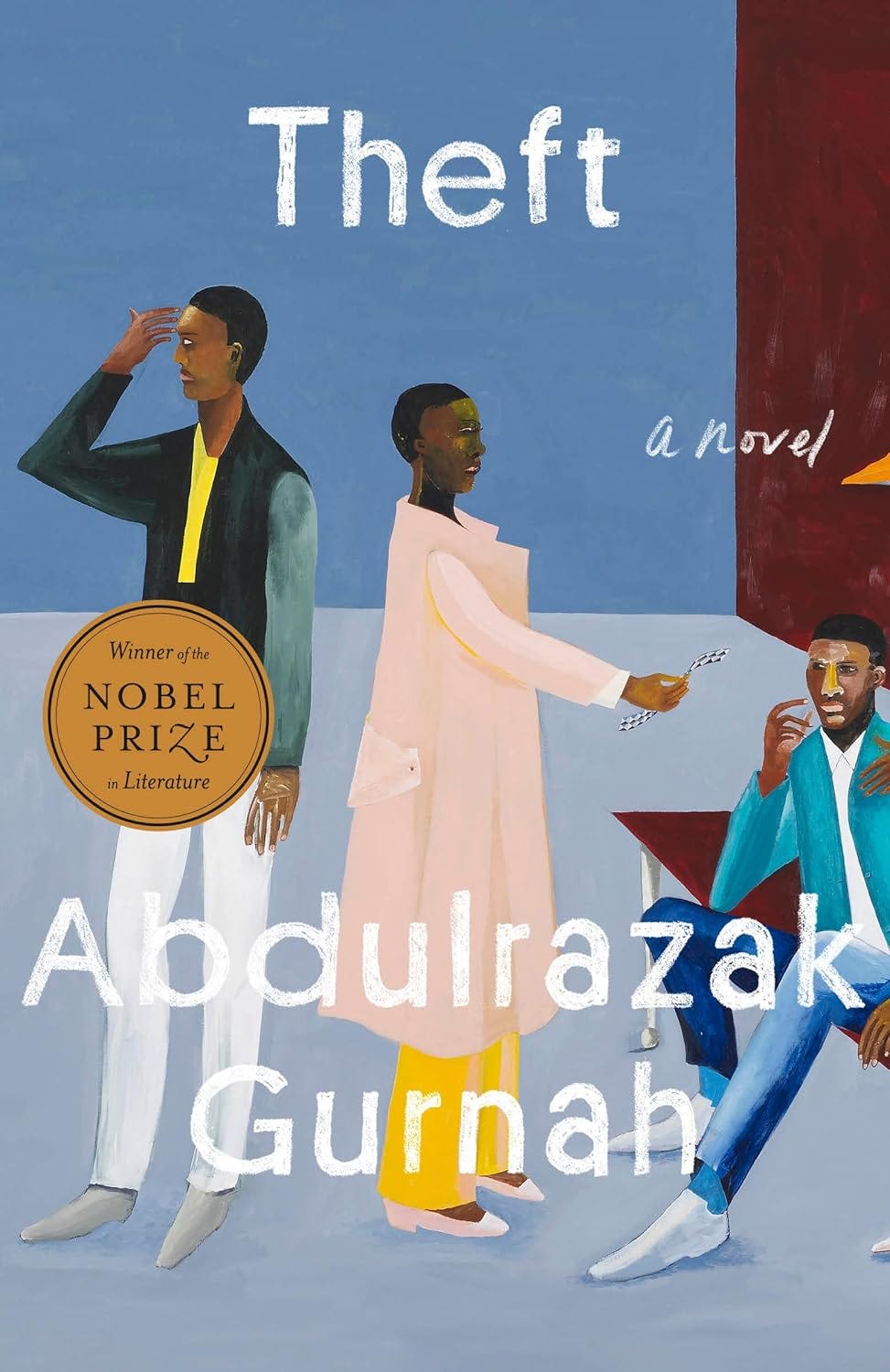Theft
It may be true that you can’t judge a book by its cover but it’s hard to deny the power of a gorgeous cover—like this one. I’d love to say I saw Abdulrazak Gurnah’s Theft on the library shelf and picked it up thinking, Oh! A new novel by the Nobel Laureate. Honestly, if not for the Nobel Prize seal, I wouldn’t have recognized his name.
I picked it up solely for the cover.
Opened it and couldn’t put it down.
Theft is a meandering story, following the threads of several lives, though all are intimately linked one way or another to Karim. Abandoned as a child by his mother. He grows up with his grandparents in Zanzibar and, after his grandmother’s death, is taken in by his older half-brother Ali and his wife Jalila, with whom he develops a close relationship. Then, moving to Dar al Salem for university, he lives a while with his mother, her new husband Haji and Haji’s grouchy Baba Othman. He is happy there, too, and successful at university—a handsome, intelligent, privileged young man with bright future.
Enter Badar, a fourteen-year-old boy from the country delivered to the home of Haji and Raja to work as their servant with no explanation to him about why.
Then Fauzia, a lovely, passionate, bright young woman studying to be a teacher.
Karim shows kindness to Badar as Ali had showed to him and strong bond grows between them. In time, Karim and Fauzia find each other and fall in love.
A subtle tension runs underneath Theft—in the characters’ lives, in Zanzibar on the cusp of change, as technology and tourism reach that corner of the world.
I was mesmerized by Theft. It’s not a mystery (other than in the way every novel is a mystery) but following the threads of the characters’ lives, going willingly down tunnels of detail felt like one. Not only in its plot but in what it was subtly telling me about those lives in that particular place and time: Zanzibar in the 1980s and how those who had stayed after the 1964 revolution in which African revolutionaries overthrew the constitutional monarchy would be profoundly affected by what was to come.
There’s no violence in the book. The enemy is Geraldine Bruno, a beautiful young British woman who comes to Zanibar to volunteer at an aid agency there.
I’ll leave you to discover how the threads of the story play out.
But I’ll say the resolution was satisfying in every possible way.
According to The Washington Post, “In his acceptance speech for the 2021 Nobel Prize in literature, Abdulrazak Gurnah extolled storytelling that sees what ‘the hard domineering eye cannot see, what makes people, apparently small in stature, feel assured in themselves regardless of the disdain of others.’ Such writing, he said, requires a way of looking that ‘makes room for frailty and weakness, for tenderness amid cruelty, and for a capacity for kindness in unlooked-for sources.’”
Theft accomplishes this.
I’ll be picking up more of Abdulrazak Gurnah books, regardless of their covers.



Sounds like another interesting book, and I agree the cover is gorgeous.